Public cars and public land are auctioned off in packages, and sanctions for violations are not strong enough. These are all "loopholes" in public asset auctions that need to be closed when amending the Law on Asset Auctions.
 |
| More specific regulations are needed to limit the collection of auctioned assets. |
Clearly define down payment for specific assets
As part of the program to be approved at the 7th Session of the National Assembly next May, the Draft Law amending and supplementing a number of articles of the Law on Property Auction (Draft) has been completed with many additional contents.
In this revision, one of the important requirements is to strengthen the strictness, objectivity, publicity, transparency, early and remote prevention of violations, contributing to promoting the prevention and fight against corruption and negativity in handling public assets. "The draft has focused on amending and supplementing many issues to meet this requirement," said Chairman of the National Assembly's Economic Committee Vu Hong Thanh when sending a report to the full-time National Assembly deputies recently.
Accordingly, the latest Draft clearly stipulates the deposit for some special assets. Specifically, in the case of auctions of mineral exploitation rights where the starting price is not determined in money, the deposit is determined according to the provisions of the law on minerals. For auctions of mineral exploitation rights where the starting price is determined in money, the minimum deposit is 10% and the maximum is 20% of the starting price.
When auctioning land use rights in the case of land allocation or land lease to implement investment projects, the minimum deposit is 10% and the maximum is 20% of the starting price. In the case of auctioning radio frequency use rights, the deposit is calculated based on the frequency band, the number of frequency blocks registered for purchase and the highest starting price of the frequency block in each registered frequency band at a minimum rate of 5% and a maximum of 20% of the starting price.
Regarding the time for registering to participate in the auction and the time for depositing the deposit, delegate Ha Phuoc Thang (HCMC) cited the provisions in the Draft, the time for individuals and organizations to submit documents to participate in the auction is very long, from the date of posting the auction until 2 days before the auction opening date. However, the Draft stipulates a very short time for depositing the deposit, within 3 working days before the auction opening date.
That is, when the deadline for receiving auction participation documents expires, auction participants still have 2 working days before the auction opening date to pay the deposit. This will lead to a situation where auction participants submit registration documents to participate in the auction, but have not paid the deposit. "This can easily lead to collusion or create fake documents," Mr. Thang worried.
 Prevent violations while respecting civil agreements.
Prevent violations while respecting civil agreements.- Delegate Nguyen Thi Viet Nga ( Hai Duong )
Regarding the regulation prohibiting participation in auctions, it is recommended to consider adding a regulation that: in case the auction winner violates the obligation to pay the auction winning price, leading to the decision to recognize the auction being canceled 2 times or more within 1 to 2 consecutive years, then the regulation on prohibiting participation in auctions will be applied. This is still meaningful in preventing negative behaviors, deposit abandonment, and inflating the value of assets, but is more flexible, respecting civil agreements between parties in auction activities.
The Ho Chi Minh City delegate suggested that auction participants should be required to deposit money in advance to the property auction organization at the same time as participating in the auction.
Another notable content in this revision is that the Draft adds sanctions to handle violations against auction winners who do not pay the auction winning money. Specifically, it adds cases where auction winners of land use rights in cases of land allocation, land lease to implement investment projects, mineral exploitation rights who violate the obligation to pay the auction winning money, leading to the decision to recognize the auction results being canceled, then depending on the nature and level of violation, they will be banned from participating in auctions for that type of property for a period of 6 months to 5 years.
“These are special assets of great value, greatly affecting the real estate market, securities, construction material prices, etc. Therefore, the addition of regulations prohibiting auction winners of these assets from participating in auctions within a certain period of time depending on the nature and severity of the violation aims to prevent negative behaviors, market disruption, and prevent the situation of forfeiting deposits or inflating asset values for profit in asset auctions,” the Standing Committee of the National Assembly’s Economic Committee explained.
Affirming that the new regulation is very necessary, delegate Pham Van Hoa (Dong Thap) said that if a violation is only banned from participating in the auction for a period of 6 months, it is too little and should be increased to 1 year or more. "In reality, in the recent auction of license plates, there were subjects in Thanh Hoa who abandoned their deposits and then participated in the auction again 2-3 months later, like a game," Mr. Hoa gave an example and said that the sanctions must be deterrent enough.
Still related to prohibited acts, delegate Nguyen Minh Tam (Quang Binh) proposed to add 2 acts. The first is to exert pressure, threaten or commit illegal acts or acts against social ethics to gain advantages for oneself or one's organization in the auction profession. The second is to receive or demand money or other benefits from auction registrants other than the sale price of auction documents, deposit and other costs that have been determined and agreed upon; receive or demand money or other benefits from a third party to carry out the act.
There are still regulations restricting individuals from participating in auctions.
Concerned about the rights of auction participants, Deputy Chairman of the National Assembly's Law Committee Nguyen Truong Giang (Dak Nong) cited the provisions in the Draft prohibiting individuals and organizations from conducting auctions that do not comply with the law, and at the same time prohibiting acts of obstructing or causing difficulties for auction participants in registering to participate in the auction.
However, according to Mr. Giang, these two regulations are not enough to overcome the situation where many assets that the law requires to be sold through auctions, such as land use rights and auctions for the liquidation of state public assets, have violations in implementation but cannot be handled.
For example, with the liquidation of public assets such as cars, in reality, when cars have expired and are put up for liquidation, agencies often collect about 10 - 20 cars that are completely functional individually to sell in one lot. "Thus, it may violate the prohibition of limiting the participation of organizations and individuals interested in participating in the auction," analyzed the Deputy Chairman of the National Assembly's Law Committee.
Similarly, according to delegate Giang, the provisions of the Land Law and the Housing Law allow the subdivision and sale of land plots in some cases, but localities implement this content very differently. There are localities that, when subdividing land plots with complete infrastructure, collect and sell 10 or 20 plots at the same time. This is also limiting the participation of organizations and individuals interested in participating in this auction.
Therefore, delegate Giang suggested that it is necessary to specify more specifically the prohibitions in the Draft to limit the above situation. "For the auction of public assets, for the right to use, it is necessary to pay attention to the provisions prohibiting the grouping of assets with independent functions into one lot to limit the participation of organizations and individuals interested in the auction," Mr. Giang stated his opinion.
In a further discussion with the Investment Newspaper reporter, the Dak Nong delegate cited information from the press that hundreds of land lots in Gia Lam and Me Linh districts (Hanoi) will be auctioned in the near future. There are land lots where investors must deposit over 100 billion VND to participate. "Thus, this law amendment needs to have more specific regulations to limit the accumulation of auctioned assets, causing difficulties for those interested in the auction," said Mr. Giang.
Source




![[Photo] Prime Minister Pham Minh Chinh chairs meeting to deploy overcoming consequences of storm No. 10](https://vphoto.vietnam.vn/thumb/1200x675/vietnam/resource/IMAGE/2025/10/3/544f420dcc844463898fcbef46247d16)
![[Photo] Students of Binh Minh Primary School enjoy the full moon festival, receiving the joys of childhood](https://vphoto.vietnam.vn/thumb/1200x675/vietnam/resource/IMAGE/2025/10/3/8cf8abef22fe4471be400a818912cb85)



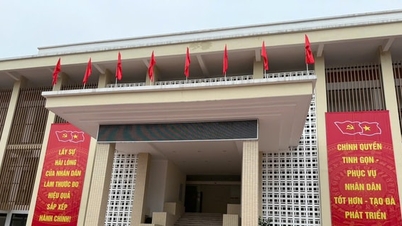

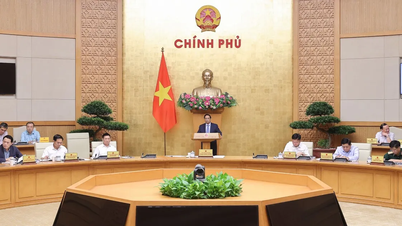



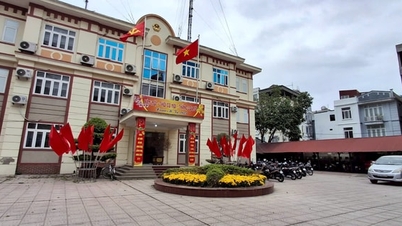








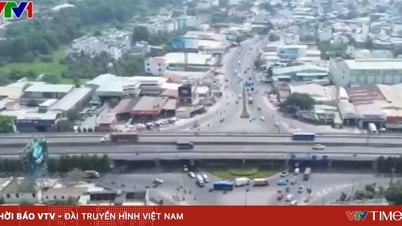















































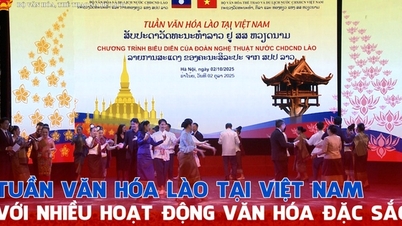

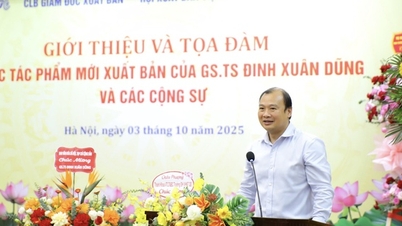






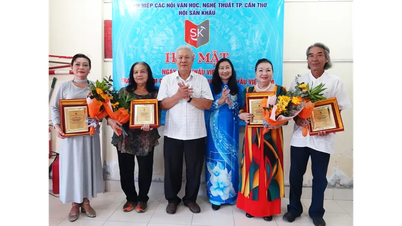

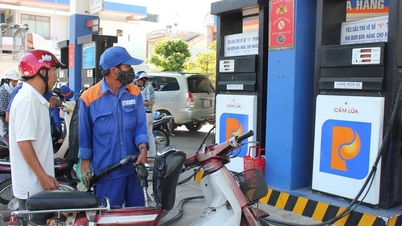

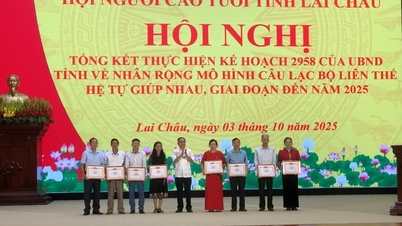

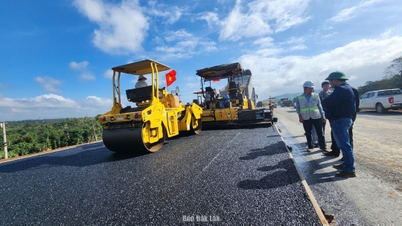















Comment (0)